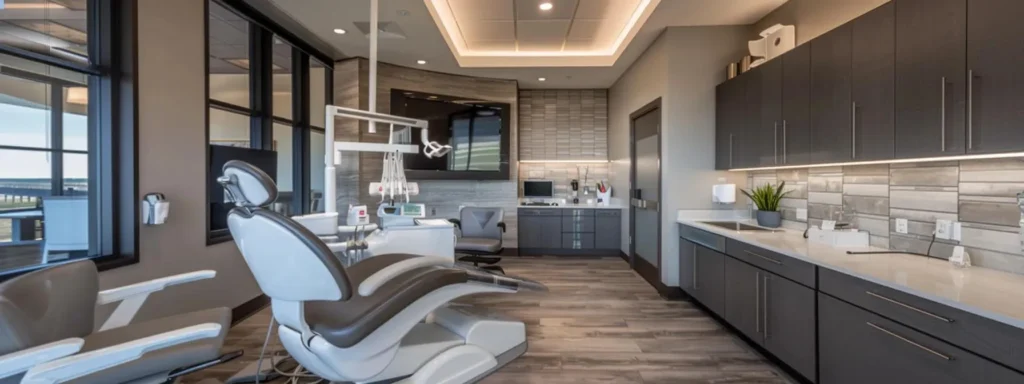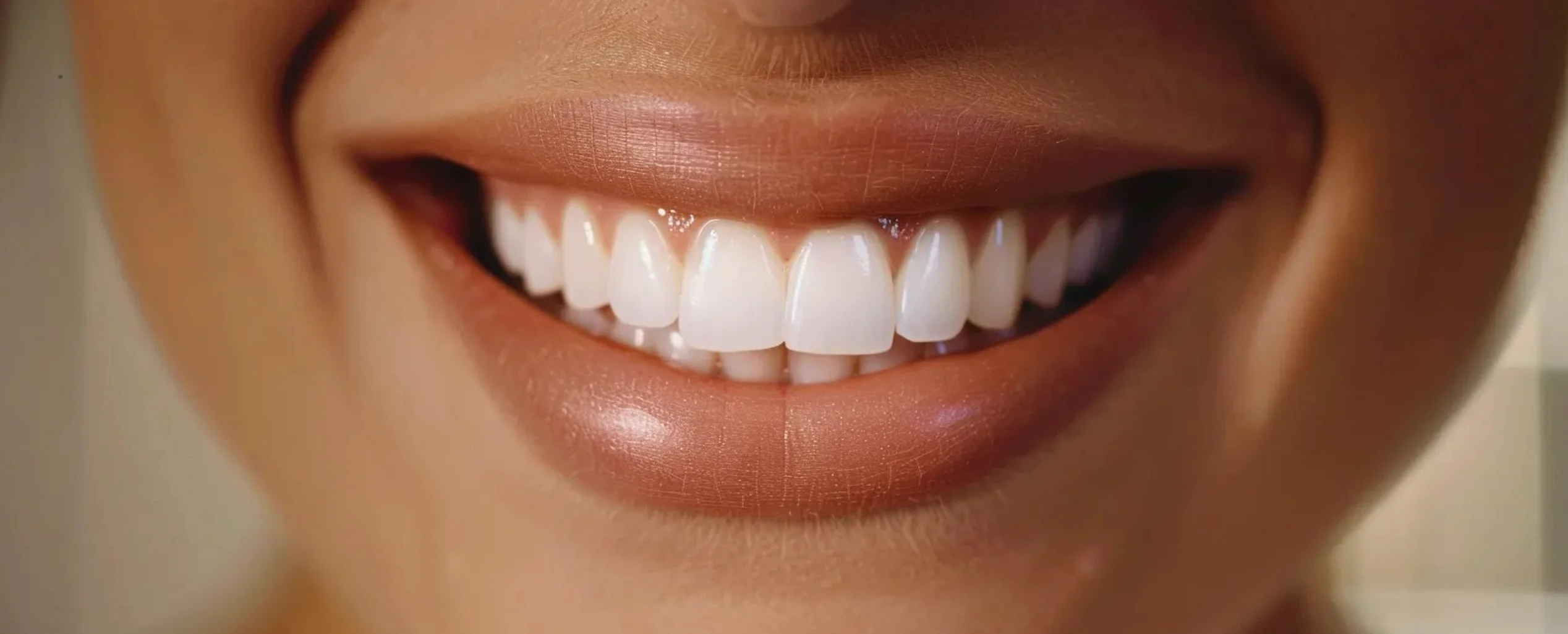The staff provided excellent care, were nice to talk to and made a very comfortable visit. They were able to provide fillings to several chipped teeth with short notice while visiting Phoenix from out of country. Both myself and my dentist back home agreed the quality of the fillings were well done, and the colour was a great match. Highly recommend for the great staff and professional work done.

Ever wake up with a jaw so sore that eating breakfast feels impossible? You’re not alone. Tons of people in Tempe and across Arizona deal with TMJ disorders every single day. But here’s the good news: massage therapy really works for TMJ relief.
Dr. Jeremy Chan, a Phoenix native practicing in Tempe, specializes in treating TMJ disorders using advanced methods like the Vivos approach. His training and understanding of Arizona’s unique needs help patients find real relief from jaw pain.
Why TMJ Massage Actually Works
Picture your jaw muscles like rubber bands stretched too tight for way too long. TMJ massage gently loosens those bands so they can move freely again. This isn’t your typical full-body massage. It targets the exact muscles that control your jaw movement and chewing.
Scientists have studied this stuff for years. Their research shows that specific massage techniques can break the pain cycle. We’re not talking about temporary relief like a pain pill that wears off in a few hours. Studies prove that targeted massage helps muscles heal and work better over time.
What makes TMJ massage different? It focuses like a laser on problem areas. Techniques like myofascial release and trigger point therapy hit the masticatory muscles with precision. These are the muscles responsible for chewing that often get tight and painful.
Patients report amazing results. Pain drops significantly. Jaw mobility improves. They can eat their favorite foods again, talk with friends, and smile without constant discomfort. Many even sleep better because their jaw muscles finally relax.
What Causes TMJ in the First Place
TMJ disorders don’t have just one cause. That’s what makes them tricky to treat. Think of TMJ like a puzzle with many pieces. Each person’s puzzle looks different.
Some people get TMJ from stress and anxiety. When you’re worried, you might clench your jaw without realizing it. This constant tension wears down your jaw muscles gradually. Others develop TMJ from injuries like car accidents, sports mishaps, or dental procedures. Even grinding your teeth at night or chewing gum too much can trigger problems.
The challenge? Figuring out which pieces apply to each patient. This is where massage therapy shines. Unlike treatments that only address one thing, massage can help with multiple causes at once.
If stress causes your jaw tension, massage helps your muscles relax. If an injury damaged your jaw, massage boosts healing by increasing blood flow. Local therapists in the Phoenix area understand how Arizona’s climate and lifestyle contribute to TMJ and adjust treatments accordingly.
Breaking the Myths About TMJ Treatment
Many people think massage is just a luxury spa treatment. Wrong. Clinical research shows massage provides real medical benefits for TMJ patients.
Unlike quick fixes that mask symptoms, massage addresses the root muscular problems. When a skilled therapist applies targeted pressure to tight jaw muscles, actual healing starts at the cellular level. Better blood flow brings oxygen and nutrients to damaged tissues while removing waste that causes pain.
Studies prove massage can reduce overactive jaw muscles stuck in constant tension. It improves blood flow, which is essential for healing. Most importantly, it helps restore normal function so your jaw works properly again.
The evidence is clear: massage isn’t a band-aid. It’s a legitimate medical treatment that provides lasting relief when combined with other appropriate therapies.
Why Team Treatment Gets Better Results
Treating TMJ takes more than one approach. Think of it like building a strong house. You need multiple materials and tools working together.
TMJ affects both muscles and jaw structure. Successful treatment often combines massage with other interventions. Medical treatments might include anti-inflammatory medications. Dental treatments could fix bite alignment problems. Physical therapy might strengthen weak muscles and improve posture.
Here’s what complete TMJ treatment typically includes:
- Massage therapy to relax tight muscles
- Dental fixes for bite problems
- Medical treatments for inflammation
- Physical therapy exercises
- Stress management to reduce clenching
- Lifestyle changes to prevent symptoms from coming back
Professional guidance makes sure all these treatments work together safely. Self-treatment often lacks the expertise needed and can make things worse.
This team approach is especially important in Arizona’s dry climate, where dehydration can worsen muscle tension. Local providers understand these regional factors and adjust care accordingly.
Massage Techniques That Actually Help
Not all massage techniques work equally well for TMJ. The most effective ones target specific muscles responsible for jaw function.
Circular kneading of the masseter muscle is powerful for TMJ relief. The masseter is that big muscle you feel when you clench your teeth. It often becomes super tight and painful. Gentle circular pressure releases tension in this critical area.
Another effective method stretches the temporalis muscle above your ears. This muscle controls jaw movement. When it gets tight, it causes headaches and jaw stiffness. Gentle stretching restores flexibility.
Key Massage Techniques:
| Technique | Target Area | Primary Benefit |
| Circular Kneading | Masseter Muscle | Reduces tension and pain |
| Gentle Stretching | Temporalis Muscle | Improves flexibility |
| Trigger Point Therapy | Specific tight spots | Releases muscle knots |
| Myofascial Release | Connective tissue | Restores tissue mobility |
Regular application of these techniques is crucial for long-term success. Just like exercise, massage works best when done consistently over time. Patients who get regular TMJ massage see much better results than those who only go occasionally.
These specialized techniques require proper training. That’s why working with qualified professionals makes such a big difference. Trained therapists understand the anatomy and know how much pressure to apply.

When You Need More Than Massage
Knowing when TMJ symptoms need more than massage is crucial for your health. While massage is highly effective for many cases, some situations require additional medical help.
Mild TMJ symptoms often respond well to massage alone. These might include slight jaw soreness in the morning or minor difficulty chewing tough foods sometimes. Many patients with mild symptoms see improvement after just a few sessions.
But certain symptoms clearly need additional medical attention. Severe pain that doesn’t improve requires evaluation. Persistent jaw locking or loud clicking needs professional assessment. Tinnitus (ear ringing) along with jaw pain can signal serious problems.
Warning Signs Requiring Medical Evaluation:
- Severe pain interfering with eating or talking
- Jaw locking in open or closed position
- Significant limitation of jaw movement
- Headaches that worsen with jaw movement
- Ear pain or ringing with jaw symptoms
- Swelling around the jaw joint
Smart patients learn to recognize these differences early. In Tempe’s growing healthcare community, multiple specialists work together to address complex TMJ cases when needed.
Getting the Right Support
Success with TMJ massage depends on proper education and professional support. When patients understand their condition clearly, they become active partners in recovery.
Patient education forms the foundation of effective treatment. When you understand your options, you make better decisions and follow recommendations more consistently.
Professional expertise makes a real difference in outcomes and safety. Qualified therapists trained in intraoral massage offer specialized skills that general massage therapists may not have. They understand jaw muscle anatomy intimately and know how to apply pressure safely.
Together, education and professional guidance create a powerful support system. This partnership represents the gold standard for TMJ care.
Protecting Yourself from Future Problems
Prevention beats treatment every time when it comes to TMJ. Smart daily habits keep jaw problems from returning once you’ve found relief.
Stress management plays a huge role because emotional stress translates directly into physical jaw tension. Arizona’s fast-paced lifestyle can contribute to stress. Techniques like mindfulness meditation help keep stress manageable. Deep breathing prevents unconscious jaw clenching.
Regular self-massage is another powerful prevention tool. Learning simple techniques you can do at home maintains muscle flexibility between professional sessions. Just five minutes daily helps prevent symptoms from returning.
Daily Habits to Prevent TMJ:
- Practice stress reduction like meditation or yoga
- Do gentle jaw stretches and self-massage daily
- Maintain good posture, especially during computer work
- Avoid hard or chewy foods during flare-ups
- Use proper sleeping positions
- Stay hydrated to keep muscles working properly
Proper posture deserves special attention. Many people in Tempe work at computers for long hours without thinking about posture. Poor posture creates neck and jaw strain that triggers TMJ problems. Simple workspace adjustments, like raising your monitor to eye level, make a big difference.
When combined with professional care, these habits create strong protection against TMJ relapse. Patients who practice prevention consistently enjoy much longer periods of comfort between treatments.
Your Journey to Relief Starts Now
Massage therapy offers real hope for TMJ sufferers seeking lasting relief. The scientific evidence keeps getting stronger.
Dr. Jeremy Chan’s expertise in advanced TMJ treatment methods, combined with his understanding of the Arizona community, provides comprehensive care. His experience and specialized training in the Vivos method make him uniquely qualified to address complex TMJ cases.
TMJ massage delivers both immediate relief and long-term benefits. Pain drops right away, improving daily comfort. Consistent treatment promotes deep healing and restores normal jaw function. This creates lasting improvement, not just temporary fixes.
Stress management is another crucial piece. Many Phoenix-area patients deal with stress-related jaw tension from work, traffic, and busy lifestyles. Dr. Chan’s approach addresses both physical symptoms and underlying stress factors. This comprehensive strategy leads to more complete recovery.
At our Tempe practice, every patient gets individualized attention throughout their treatment journey. We combine research-backed treatments with compassionate, personalized care. Our goal is helping each person achieve optimal jaw health that lasts.
Tempe Dentistry
480-897-2274
4427 S Rural Road, Suite 2
Tempe, AZ 85282
https://tempe.dental/
Frequently Asked Questions
Can massage therapy really help with TMJ disorders?
Yes! Research shows massage effectively targets jaw muscles to reduce pain and improve function. It’s a safe, proven treatment that can dramatically improve your quality of life. Clinical studies document substantial improvements in pain levels and jaw mobility for patients who get regular massage from qualified professionals.
How often should I get a massage for TMJ?
Consistency is key for the best results. Most patients benefit from regular sessions as recommended by their healthcare provider. The frequency depends on your symptoms, severity, and how well you respond initially. Your therapist will help develop a schedule that works for your lifestyle and budget.
Are there any risks with TMJ massage therapy?
When done by qualified professionals, TMJ massage is very safe with minimal risks. Always communicate any discomfort during treatment. Qualified therapists know how to adjust pressure and techniques based on your feedback throughout each session.
Dr. Chan’s Arizona dental license number is 10020, verified through the Arizona State Board of Dental Examiners and the NPI Registry. Every whitening treatment follows current American Dental Association (ADA) best practices to ensure safety, comfort, and effectiveness.
The information on this page is provided to help you understand general dental care and the preventive services we offer. It’s not a substitute for professional diagnosis or individualized treatment. Every patient’s needs are different, and your dentist will evaluate your oral health before recommending any specific care or procedure. (For personalized guidance, please schedule an appointment with a licensed dental professional.)
Related Articles
TMJ Treatment Options ~ TMJ Disorders Symptoms ~ Strategies for Managing Jaw Discomfort ~ TMJ and Sleep Disorders ~ TMJ Botox ~ When to See a TMJ Specialist



